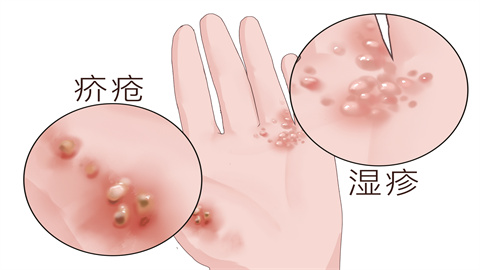What ointment is good for scabies to heal quickly?
Scabies is generally a skin disease caused by the parasitism of scabies mites on the skin. There is no such thing as a topical ointment that can quickly cure scabies. Commonly used ointments for treating scabies currently include sulfur borax cream, salicylic acid ointment, crotamiton cream, hydrocortisone butyrate cream, and mupirocin ointment. If the condition is severe, timely medical attention is required. Detailed analysis is as follows:

1. Sulfur Borax Cream
Sulfur borax cream can kill scabies mites and inhibit their further reproduction. Applied directly to affected areas, it can destroy the growth environment of the mites, thereby achieving therapeutic effects. However, this medication is quite irritating and long-term use may cause skin dryness and peeling.
2. Salicylic Acid Ointment
Salicylic acid ointment softens the skin's keratin layer. When used together with insecticidal ointments, it enhances drug permeability, helping patients control the condition and shorten the disease course. However, long-term use may cause symptoms such as skin redness and burning sensation.
3. Crotamiton Cream
Crotamiton cream is also a commonly used insecticidal ointment. It can kill scabies mites and thus relieve itching. It is often used to treat scabies and skin pruritus. However, excessive use may cause skin pain and burning sensation.
4. Hydrocortisone Butyrate Cream
Hydrocortisone butyrate cream belongs to the class of glucocorticoid ointments and has anti-inflammatory and anti-allergic effects. It is commonly used to treat skin diseases caused by inflammatory infections. When scabies causes an inflammatory response with inflammatory edema, it can be applied appropriately. However, usage should be controlled to avoid skin atrophy and capillary dilation.
5. Mupirocin Ointment
Mupirocin ointment is an antibiotic ointment that has anti-inflammatory and antibacterial properties. When scabies is complicated by bacterial infection, with skin breakage and ulceration, it can be used as appropriate to help reduce the severity of the infection and prevent further skin ulceration. This medication is relatively safe, but some patients may experience skin irritation or allergic reactions after use.
It should be noted that when using the above ointments, treatment should be conducted under a doctor's guidance to avoid self-medication. Additionally, the skin should be cleaned with warm water before application to ensure the affected area is dry and clean.




